E-commerce in Germany: from mail order to marketplaces

Two decades of e-commerce in Germany with Andreas Kreickmann
Andreas Kreickmann has seen everything in e-commerce in Germany, from basic CSV files to real-time operations. He brings to his role as Senior Sales Director not just expertise in logistics, but a deep understanding of how fashion and e-commerce fulfillment can work in perfect harmony – just like the millions of parcels he’s helped deliver throughout his career.
An Interview with Andreas Kreickmann, Senior Sales Director, Radial Europe
Andreas, you have a huge experience in logistics for e-commerce in Germany. Could you give us an overview of your background?
I’ve been in e-commerce for over 20 years — back when ‘e-commerce’ meant sending faxes and hoping for the best. I started at a mid-sized German company handling fashion, beauty, and lifestyle fulfillment.
Before that, I worked for a retail company in the sweets industry.
So yes, officially, I’ve gathered what we call ‘extensive experience in commercial fulfillment,’ which is a fancy way of saying I’ve seen everything in terms of warehousing, picking, packing, delivering—and then some.
You studied Business Administration at the University of Mannheim. Has your educational background influenced your career in e-commerce and logistics?
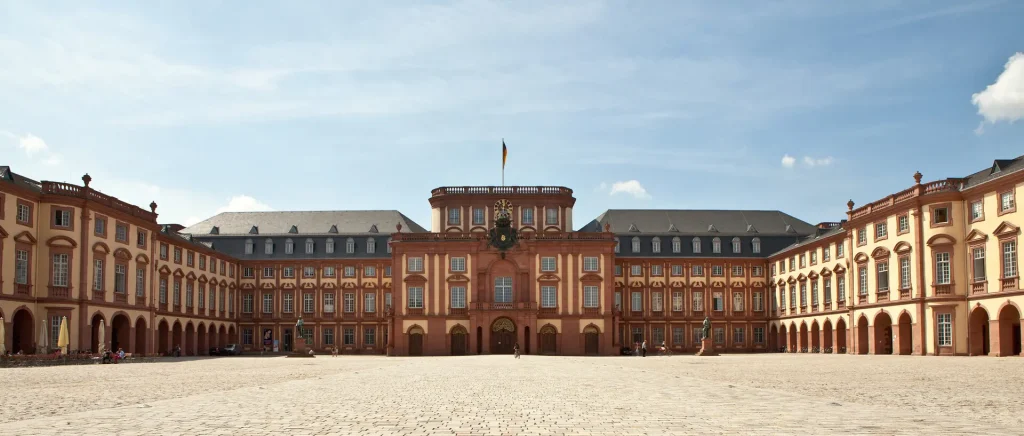
Yes, I studied Economics and Business Administration — what is nowadays called an MBA. While the academic foundation was important, the real learning happened as the e-commerce industry evolved.
When I started my studies in 1989, e-commerce in Germany didn’t exist. The theoretical frameworks from my studies helped me understand business fundamentals, but I had to adapt and learn as the industry developed.
Your career spans over 20 years in e-commerce. How has the industry evolved?
I spent almost 19 years in a German fulfillment company as Sales Director, and it was fascinating to witness the transformation from traditional mail-order to e-commerce.
When I started in the early 2000s, we were still primarily dealing with catalog-based mail-order companies. The transition to e-commerce happened gradually, with the first online shops launching around 1999-2000.
While at Innotrac Europe as Executive Sales Director, I gained a strong experience in the American market, which gave me a broader perspective on global e-commerce trends.

Now at Radial, I can combine this international experience with my understanding of the European market, particularly e-commerce in Germany.
Innotrac Europe, which later became part of Radial. Has that previous experience influenced your current role?
I experienced firsthand some of the foundational developments that would later shape Radial.
Innotrac was acquired by Radial (then eBay Enterprise) in 2014, and this merger brought together complementary strengths in e-commerce fulfillment services.
This background gives me a unique perspective in my current role at Radial Europe: I understand the historical development of our services and how they’ve evolved to meet today’s market demands.
What are the biggest changes in e-commerce in the German/European market?
When I started in fulfillment, we only worked with mail-order companies. E-commerce in Germany wasn’t a significant factor yet. The first online shops we launched were around 1999-2000. Initially, the technology was quite basic – we were working with CSV files, Excel sheets, and simple file exchanges.
The evolution has been dramatic in several ways. Technology became more mature, shifting to real-time operations. Service levels have become much faster, and customer expectations have grown significantly stricter, largely driven by companies like Zalando and Amazon who set the new industry standards. E-commerce in Germany would never be the same after Zalando.
Zalando seems to have been a major influence on German e-commerce.
Zalando changed the German market. When it first launched, it grew dramatically in sales, but so did the returns.
Zalando set the standard for a 50% return rate in fashion e-commerce in Germany. Its approach was completely centered around customer service – it made returns a core part of its customer service strategy.
Zalando pioneered two major changes in the market: it was the first to offer free returns and free shipping costs. This model became so influential that other e-commerce companies had to adapt to stay competitive.
Are these trends continuing today?
There has been a significant shift in the last four or five years. Many companies are now trying to avoid returns and we’re seeing a tendency to re-introduce shipping fees.
This shift is happening because the previous model, while customer-friendly, wasn’t financially sustainable for many companies.
I believe the industry is becoming healthier and more sustainable as a result.

Returns, particularly in fashion, create significant environmental impact, especially with the packaging and transportation involved. Sustainability is becoming increasingly important – it is driving changes in how we handle fulfillment, especially when it comes to packaging materials and return processes.
How has this affected return management strategies?
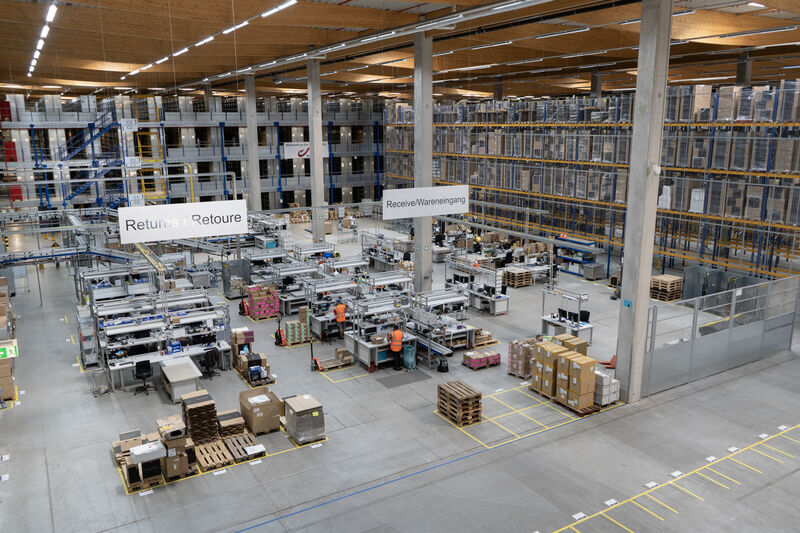
In Germany, you’re required by law to allow returns for at least two weeks, but there are various ways to optimize the process. For global companies, one effective strategy is running local warehouses for return services. This not only improves sustainability but also reduces transport costs, i.e. having French customers return to France, German customers to Germany, and so on.
Another key point is maximizing the resellability of returned items. We offer value-added services like refurbishing returns, cleaning products, and even repairs such as sewing buttons on fashion items. The goal is to bring as much stock as possible back to a resellable condition.
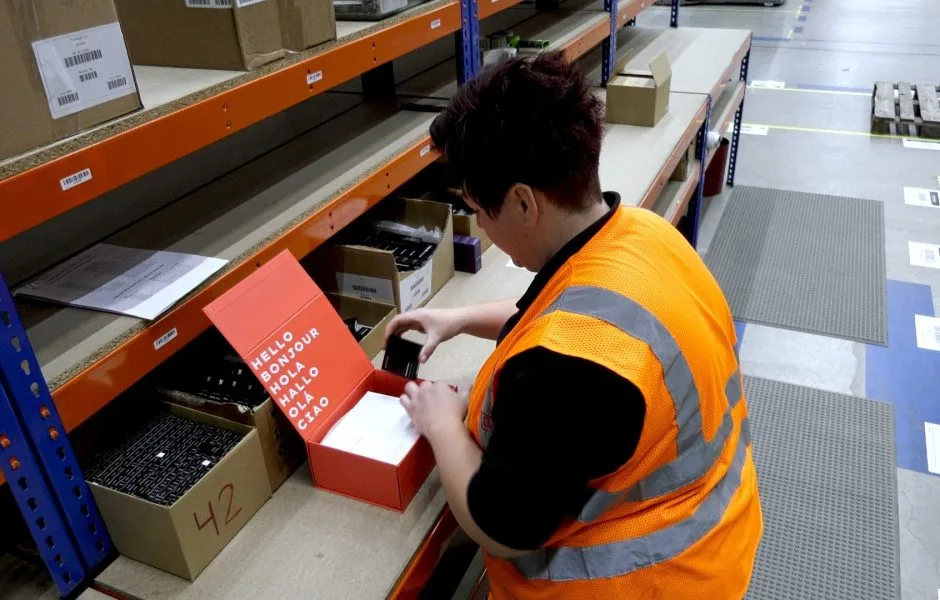
A moment in the VAS (Value Added Services) operations at the Radial warehouse in Halle, Germany
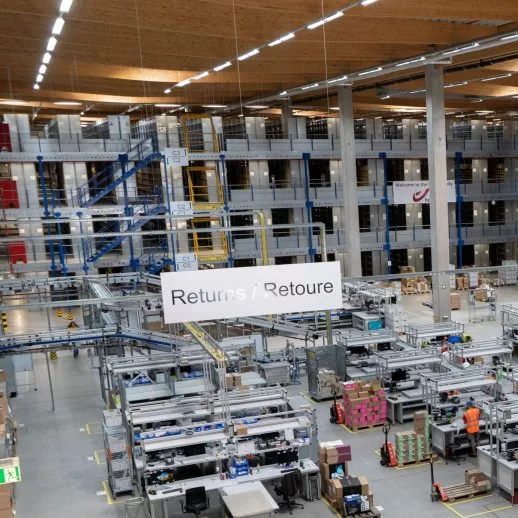
How do you see automation in fulfillment?
Full automation isn’t always the right answer to customer needs. The world is changing, we need to stay flexible. Semi-automated solutions work best – automation in picking and storage is fine, but packing should remain more personalized.

We need to maintain the ability to include marketing materials and create a branded unboxing experience. Parcels have to be packed with attention to the brand image, not something you can fully automate.
The best industry events?
The E-channel Days (ECD) in Munich is my favorite event. It’s where you can connect with many fashion brands in Germany – it’s really like a family event for the industry vertical. They offer interesting presentations and a very condensed program. One of the most valuable aspects is learning about what’s happening with different marketplaces.
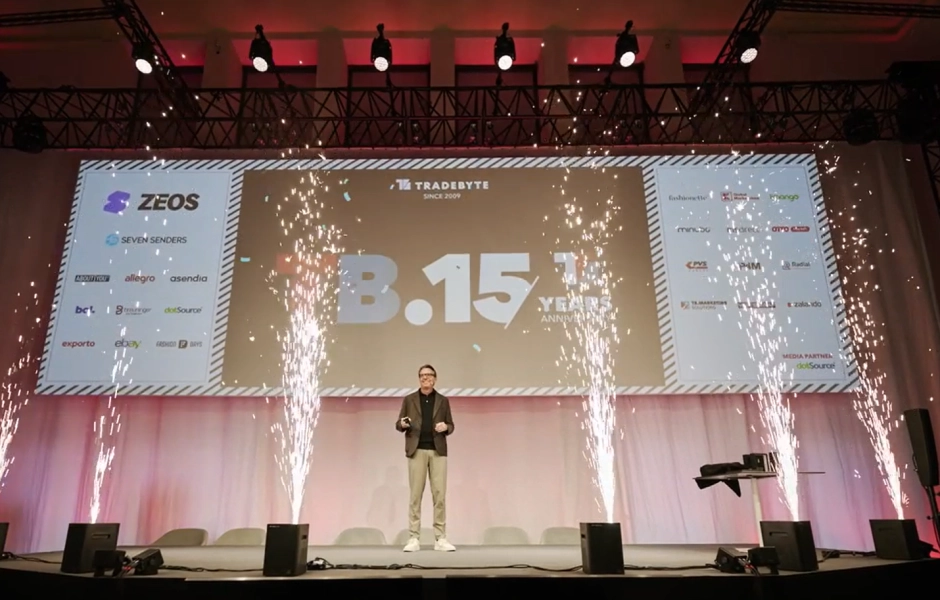
A moment from ECD 2024, organized by Tradebyte and held in Munich, Germany.
Could you elaborate on the importance of marketplaces?
While having your own online shop is good, you ultimately win or lose business based on your marketplace presence. This isn’t just true for Germany – it’s a global trend.
We’re seeing the number of marketplaces growing, with one or two new marketplaces emerging or reinventing themselves almost every month. For our brands and customers, marketplace strategy is just central to their business.
How do you stay up to date with market developments?
Learning is an ongoing process. It’s a mix of reading, speaking with people, and gathering market information. The best learning comes from talking to experts, consultants, and brands who are active in the market.
Understanding new technologies and future requirements is crucial for our company to stay competitive and reinvent ourselves when needed.
What have been your favorite brands to work with in your career?
For me, it’s not really about the brand names themselves – it’s about the people behind the brands. At the end of the day, we’re in the service industry and it’s a people business.
Even if a brand is perfect, the people behind it make the difference. I’ve worked with many fashion and shoe brands, which I particularly enjoy, but what makes the experience memorable is building trust and professional relationships with the people involved.
Can you tell us about Radial’s fulfillment capabilities in Germany?

Our Halle facility is located in the heart of Europe, just 15 minutes from Halle/Leipzig airport. We can cover Germany and Eastern European markets within 24 hours, with late cut-off times around 6-7 PM.
The center features semi-automated systems, including conveyor and rail systems designed for fashion clients.
Your footprint extends to Poland as well. What’s special about the Warsaw facility?

Our 17,000-square-meter facility near Warsaw combines automation with flexibility. We’ve implemented Knapp automation with A-frame systems and pick-to-light technology, doubling our same-day shipping capability.
With a 19:00 cut-off time and capacity for tens of thousands of daily orders, it’s a key hub for Central and Eastern Europe.
How does automation factor into these operations?
We believe in semi-automated solutions that balance efficiency with flexibility. While we automate picking and storage processes, we maintain manual capabilities for specialized handling.
This hybrid approach allows us to manage high volumes while ensuring personalized service, especially important for fashion and lifestyle brands.
What sustainability initiatives have you implemented in these facilities?
Both centers prioritize sustainability. We use packaging on demand, 100% recyclable materials, and energy-efficient LED lighting with motion detection.
Our Warsaw facility has earned Breeam In-Use and FSC CoC certifications. These initiatives reduce our environmental impact while creating cost efficiencies for clients.
What drives you in this industry?
This industry reflects modern sales channels perfectly. Brands must be active across multiple channels and customer touch points – it’s no longer one-to-one but one-to-many. Radial, as a global company, is well-positioned to offer solutions both in Europe and the US.
We’re particularly well-suited to help with future challenges like customs and other potential changes between the US and Europe. While we can’t predict exactly what will happen, Radial is well-equipped to adapt to these changes and develop appropriate solutions for our clients.
The market is future-oriented and will continue to expand, making it an exciting space to work in. For me personally, working with Radial allows me to be part of this evolution while helping companies navigate these complex multi-channel environments.

Andreas Kreickmann
Senior Sales Director, Radial Europe
akreickmann@radial.com
+49 173 8875895
A veteran e-commerce strategist with over two decades in logistics and fulfillment solutions. After graduating in Business Administration from the University of Mannheim, Andreas shaped his career through key roles as VP Sales & Marketing, PVS Europe, and executive positions at Innotrac Europe GmbH and IPO Solutions.
Now at Radial Europe, he leverages his extensive experience in fashion, beauty and lifestyle, and deep understanding of European marketplace dynamics, to drive omnichannel fulfillment solutions.
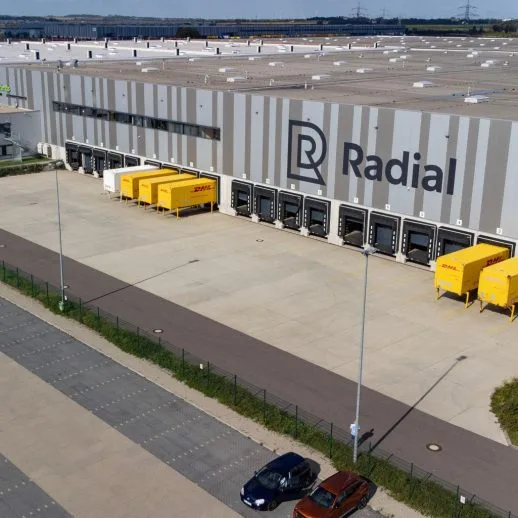
At the center of Europe
Halle fulfillment center
An introduction to Radial Europe’s fulfillment center in Halle, Germany.
